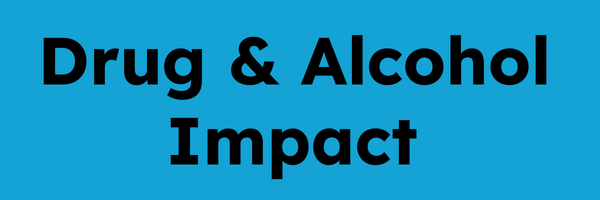Drugs: The Situation
.jpg)
Drug use continues to occur and be cause for concern within the student population.
Universities have previously, and many still do use a zero tolerance approach to drug use. However, some universities are now using, or are working toward introducing, a harm-reduction approach wherein the health and wellbeing of the student is paramount, meaning that should a student be using drugs, they are offered appropriate support. Along with ensuring support is available and offered, this approach focuses on the education and awareness of students around drug use.
Professor Dame Carol Black, in her role as a special advisor for UUK, commented that one of the key findings of her independent review was “the rise in recreational drug use and associated harms among young adults.” (Universities UK, News, 2022). Thus, highlighting the need for and importance of new approaches to protect the wellbeing of young adults, including students.
DRUG USE WITHIN THE STUDENT POPULATION
Through our research conducted within the 2021-22 academic year (responses from 1631 students), we found:
• Cannabis is the most frequently used drug reported by those who currently use or have used drugs.
• 55% of respondents stated that prior to starting university they used drugs occasionally and 12% said that they used drugs most of the time.
• Now they are at university 56% report using drugs occasionally with 18% saying that they use drugs most of the time, thus it appears that more students report using drugs occasionally and most of the time once at university.
• 61% of those who said they currently use, or have used drugs in the past whilst they were students, say they do so for recreation, 23% say it is to enhance social interactions and 22% say that it is due to boredom. Additionally, 17% say that they use drugs to deal with stress, and so this is where, with support from SOS-UK and guidance from the Drug and Alcohol Impact programme, a university and students’ union partnership could look at introducing wellbeing events or similar to offer students an opportunity to reduce stress in a more positive way.
A report from the Higher Education Policy Institute (Hepi) refers to surveys that suggest that only 3 in 10 students would be willing to share information about their drug use, or abuse, to their institution due to fear of punishment. Thus, it is evident that having a zero-tolerance drug policy can be damaging to wellbeing of students, preventing them from seeking information and/or support.
ISSUES OF DRUG USE WITHIN THE STUDENT POPULATION
Through our 2021-22 research (responses from 1631 students) we found a number of issues to occur associated with drug use, these include issues involving the health and education of individuals, but also the occurrence of antisocial behaviour.
Health:
Of respondents who currently (or previously) use drugs:
• 13% said that it made an existing mental health condition worse and 6% said that it caused a new mental health condition. However, 19% said that it improved their day to day experience of an existing mental health condition.
• 19% took risks with their personal safety that they would not have otherwise.
• 20% said that they occasionally use two or more drugs at one time. Therefore, there is a need to educate students around polydrug use in order to prevent harm occurring if and when individuals choose to mix drugs.
• 3% of respondents said that they have driven a car or other vehicle whilst under the influence of drugs and 10% said that they have injured themselves.
Education
Of respondents who currently (or previously) use drugs:
• 26% said that they miss seminars, lectures or classes, 17% arrive late to them, and 12% report going to a seminar/lecture or class under the influence.
Anti-social behaviour
Of respondents who currently (or previously) use drugs:
• 8% said that they got into an argument with people they know and 4% got into an argument with strangers.
Therefore, it is evident that drug use does occur within the student population, and is a cause for concern, with the wellbeing of students and those around them at risk. Many students do and will continue to engage in drug use, and so it is important that appropriate support is available, but also that they are provided with education and awareness around drug use in order to prevent associated harm occurring. This is where a harm-reduction approach to student drug use becomes useful.


